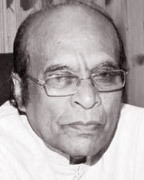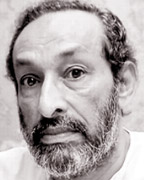The choice before the TNA
 Arthur Koestler, the Hungarian Jewish Communist, published ‘The
Gladiators’ in 1939. It was his first (and arguably his best) novel. It
dealt with the Roman slave revolt led by Spartacus in 73 BC, and
-similarly to the book on the same subject written by the American
Communist Howard Fast a decade later - it really addressed the problems
of the current world. Arthur Koestler, the Hungarian Jewish Communist, published ‘The
Gladiators’ in 1939. It was his first (and arguably his best) novel. It
dealt with the Roman slave revolt led by Spartacus in 73 BC, and
-similarly to the book on the same subject written by the American
Communist Howard Fast a decade later - it really addressed the problems
of the current world.
Koestler expressed through the struggles of classical-era Roman
slaves the internal struggle he was undergoing at the time, due to his
growing disillusionment with the Soviet Union. Nevertheless, he had not
yet lost his sympathy for the struggles of the common people and his
characters were drawn with all the empathy he had at the time.
One of his main protagonists, the pettifogging lawyer and author
Fulvius, on witnessing how the slaves of Capua turn against Spartacus,
writes a treatise headed ‘On the causes which induce man to act contrary
to the interests of others when isolated, and to act contrary to his own
interests when associated in groups or crowds’.
Presidential election
The second half of this title could verily have been written about
the travails of the Tamil people of Sri Lanka. Except on one or two
occasions, the mass of the voters of the North and East of island have
cast their ballots against their own interests. A case in point was the
Presidential Election of 1982, in which the Tamil people of Colombo
voted en masse for the United National Party.
 |
 |
| D. E. W.
Gunasekera |
Vasudeva
Nanayakkara |
JR Jayewardene, who had introduced ‘Sinhala Only’ into the State
Council in the 1940s (it was SWRD Bandaranaike’s intervention that
changed this to include the ‘reasonable use of Tamil’ clause), led the
‘March on Kandy’ against the ‘Reasonable use of Tamil’ modification to
the ‘Sinhala only’ act. Even after the Black July 1983 pogrom, the Tamil
people of Colombo continued to support the UNP.
Social integration
This pattern was apparent two decades earlier, at the General
Election of March 1960. The Left parties had opposed ‘Sinhala only’ and
held out for parity of status between Tamil and Sinhala. The Tamil
voters of the North and East rewarded them by voting en masse for the
Federal Party, which had agreed to ditch parity of status in favour of
SWRD Bandaranaike’s ‘Sinhala only, Tamil also’ formula. The Communist
Party’s veteran Ponnambalam Kandiah, the Left’s sole Member of
Parliament from the North, was defeated in Uduppidy.
Parenthetically, the Federal Party (known in Tamil as the Ilankai
Tamil Arasu Kachchi) had also opposed the Paddy Lands Act, introduced by
Philip Gunawardena in 1958 to help poor farmers (who, after all
constituted the bulk of the population of the North). Afterwards it
launched the ‘Anti-Sri’ campaign to keep Ceylon Transport Board buses
out of the Jaffna peninsula, which was detrimental to the needs of the
population, but suited the interests of the Mudalalis who ran illicit
private bus operations.
Did the Tamil voters make the same mistake at the last general
election too? The Tamil people of the North voted overwhelmingly for the
Tamil National Alliance, which is the natural successor to the FP; one
of its constituents - a breakaway from the Tamil United Liberation Front
- has taken on its mantle, including its Tamil name and initials: ITAK.
Last week, the Sunday Observer reported Minister of National
Languages and Social Integration Vasudeva Nanayakkara as telling them
that while the government pursues a ‘one nation policy’ the TNA is doing
the opposite, by adopting a ‘two-nation policy’. He refers, of course,
to Colvin R de Silva’s famous ‘two languages, one nation; one language,
two nations’.
Expanding on this theme, he said that the 10-year national plan for a
Trilingual Sri Lanka is expected to address the grievances of each
ethnic community, giving them dignity by developing their linguistic,
cultural and religious values and parity of status. The government’s
efforts at uniting all communities under one banner are impeded by
Sinhala hardliners ‘expect the minorities to live under their dominance,
accepting whatever is offered by them, including the right to live.’
The government is trying to work out a devolution scheme, and
discussions are going forward. This provides an opportunity for the
Tamil people of the North and East, especially to come to a Modus
Vivendi with the other communities.
Golden opportunity
Separatism has never really been an option. Whatever its purely
theoretical benefits, it has in practice been shown merely to aid to
provide more powerful predators with smaller and more easily digestible
morsels for ingestion – Balkanisation is the term which was coined to
describe this process. The way forward is to build a united nation - in
every sense of the word.
In an interview published in the Daily News, Human Resources Senior
Minister D.E.W. Gunasekera said of the Lessons Learnt and Reconciliation
Commission report that it ‘says that the problem had been created by
politicians and it has to be solved by politicians. It says the
politicians are not unwilling or incapable of finding a solution. We
should not let go of this golden opportunity as we did in the past. We
have to shed our differences, compromise, accommodate, talk and come to
a consensus without sticking to our own political views. We have to find
a practically implementable solution.’
The TNA has a clear choice before it. It can hark back to the
tradition of Ponnambalam Arunachalam and Ponnambalam Ramanthan -
Ramanathan was the prototype for George Bernard Shaw’s ‘Cingalese
gentleman’, Jaffna Pandranath - who thought of themselves as Sri Lankans
first and Tamils afterwards. It can make this opportunity one in which
the Tamil people did not act contrary to their own best interests.
The other alternative is unthinkable.
|



